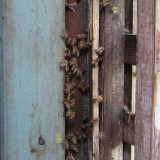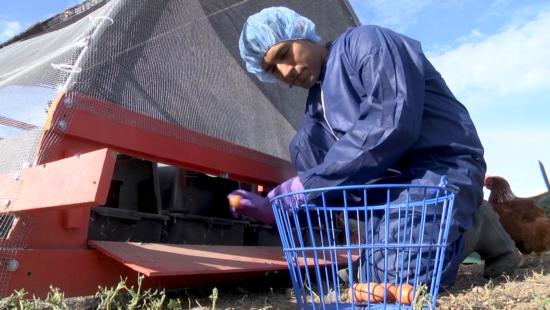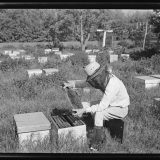This weekend’s natural beekeeping conference, put on by HoneyLove, was informative and inspiring. On the blog this week I thought we’d take a look at some of the issues brought up at the conference beginning with the research of Dr. May Berenbaum, an entomologist at the University of Illinois at Urbana-Champaign.
Berenbaum’s specialty, for many years, was the interaction of plants and insects. Her interest in bees began with her frustration with the common idea that honey is nutritionally indistinguishable from sugar. In her presentation, in chart after chart, she showed the huge difference in the biochemistry of different honey varietals. Take, for instance, antioxidant levels. It turns out that darker types of honey, such as buckwheat, have a lot more antioxidants than lighter varieties like citrus honey (the exception to this rule is sunflower honey which is both light and high in antioxidants).
The same differences can be found with the antimicrobial properties of honey. Manuka honey, produced in Australia and New Zealand has the highest antimicrobial levels of any type of honey. But, Berenbaum warned, there’s a lot of fake Manuka honey on the market.
One of the most mind bending bits of research Berenbaum described was the discovery that some sources of nectar contain chemicals that can help a beehive recover from toxins and that the bees themselves self-diagnose and then seek out these nectar sources. Just think about that! Unfortunately, she also noted that agricultural states like Illinois, where she lives, lack the nectar source biodiversity that bees need to stay healthy. It’s a state made up, almost entirely, of corn and soy fields.
Her talk was somewhat of an indictment against one of the common practices of conventional beekeepers: feeding bees sugar. The problem is that these simple sugars lack many of the biochemical components found in honey that bees need to stay toxin-free and robust.
Berenbaum did not discuss the impacts of honey on human health but I’ll go out on a limb and guess that those higher antioxidant levels in dark honeys are probably better for us too.






Interesting post and a beautiful photo. Wish I could have attended the conference.
Fascinating! I’ve always thought that “honey is the same as sugar” logic was fishy….glad to know some background to back up my gut feeling.
*entomologist. I’m sure she’d be flattered to be referred to as a linguistics expert, but I’m also fairly certain her main specialty is arthropods. ;^)
Maybe she’s an expert in the language of bees?
Thank you for catching an embarrassing typo! Corrected!